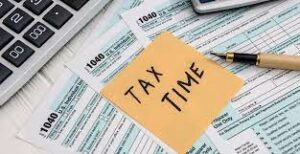In a major regulatory shift for the crypto industry, the U.S. Internal Revenue Service (IRS) has finalized rules that bring decentralized finance (DeFi) platforms under its broker framework. Beginning in 2027, certain DeFi platforms will be required to report gross proceeds from the sale of digital assets, aligning them with traditional financial intermediaries.

Key Changes and Who They Impact
The IRS has clarified that DeFi front-end service providers — platforms that allow users to access decentralized exchanges — will be considered brokers if they facilitate transactions in a manner that gives them sufficient control or influence. This distinction excludes some participants in the DeFi space, focusing enforcement on those who operate the transaction gateways.
According to the IRS, roughly 650 to 875 DeFi brokers will likely fall under the scope of these new rules. The move is part of a broader effort to improve transparency and enforce tax compliance across the digital asset space.
Legal Basis and Industry Pushback
The regulatory changes stem from provisions in the 2021 federal infrastructure law, which sought to close tax gaps created by unregulated crypto activity. By targeting platforms that enable transactions through software interfaces, the IRS is applying similar standards used for brokers in traditional finance.
“Providing a software suite that allows customers to interact with distributed ledger networks and conduct transactions via DeFi apps qualifies as broker activity,” the IRS noted.
Still, DeFi advocates have expressed concern over the feasibility of compliance, arguing that many platforms are inherently decentralized and lack a central entity capable of fulfilling reporting obligations.
Grace Period and Penalty Relief
To mitigate immediate pressure, the IRS has introduced a transition period. DeFi brokers who demonstrate a good-faith effort to comply in 2027 will be exempt from penalties related to underreporting. This relief also covers backup withholding taxes for that year and certain transactions in 2028.
The rules make clear that entities like internet service providers and hardware manufacturers are not affected by the broker classification. However, the inclusion of DeFi front-ends signals a tougher enforcement stance and a new compliance reality for decentralized platforms.
A New Era for Crypto Regulation
This decision marks a turning point in how DeFi is treated by regulators. Whether these decentralized systems can adapt to traditional regulatory frameworks — or whether such oversight will stifle innovation — remains to be seen. What’s certain is that tax authorities are no longer sitting on the sidelines.
